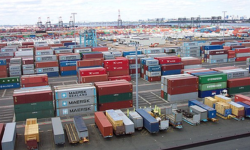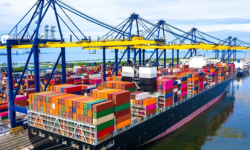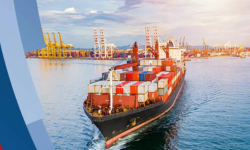LCL and FCL Worldwide
200+ Happy Customers
5 Years of Experience
Trusted service professionals
Rated 4.8 out of 5
Making the Right Choice for Your Global Shipping Needs
When it comes to international shipping, two terms you often encounter are LCL and FCL, standing for Less than Container Load and Full Container Load, respectively. Understanding the differences between these two options is essential for businesses and individuals looking to transport goods globally. In this article, we will explore the nuances of LCL and FCL, helping you make the right choice for your worldwide shipping requirements.
LCL (Less than Container Load)
LCL is a shipping option suitable for smaller consignments that do not fill an entire shipping container. Here are some key features and advantages of LCL shipping:

Cost-Efficiency
LCL allows you to share container space and costs with other shippers, making it a cost-effective choice for smaller shipments. You pay only for the space your cargo occupies.

Flexibility
LCL is highly flexible, as it accommodates shipments of varying sizes. This flexibility is particularly beneficial for businesses that do not have enough goods to fill a whole container.

Reduced Inventory Holding
LCL enables businesses to manage their inventory more efficiently. You can ship smaller quantities more frequently, reducing the need for extensive warehousing.

Worldwide Reach
LCL services are available to a wide range of destinations, making it a convenient option for global shipping needs.
FCL (Full Container Load)
FCL is the choice when you have enough cargo to fill an entire shipping container. Here are some key features and advantages of FCL shipping:

Exclusive Use
With FCL, you have exclusive use of the entire container, which provides added security and control over your goods during transit.

Speed and Efficiency
FCL shipments are typically faster than LCL, as there is no need to wait for other cargo to fill the container. This can be crucial for time-sensitive deliveries.

Reduced Handling
FCL shipments involve less handling, reducing the risk of damage to your goods.

Cost-Effective for Large Shipments
If you have a substantial amount of cargo to transport, FCL can be more cost-effective than multiple LCL shipments.

Choosing the Right Option
The choice between LCL and FCL depends on several factors:
- Cargo Volume: If you have a small volume of cargo, LCL may be the more economical choice. However, if you have enough cargo to fill a container, FCL could be more cost-effective.
- Urgency: If time is of the essence, FCL is generally faster because it doesn’t wait for other shipments to fill the container.
- Cargo Nature: Consider the nature of your cargo. Fragile or sensitive goods may benefit from the reduced handling associated with FCL.
- Budget: Your budget considerations will play a significant role in your choice. LCL offers cost savings for smaller shipments, while FCL can be economical for larger consignments.
In the world of global shipping, the choice between LCL and FCL is a critical one. Each option has its own set of advantages and is suited to different circumstances. By understanding your cargo volume, urgency, and budget, you can make an informed decision that ensures your goods reach their worldwide destinations efficiently, securely, and cost-effectively. Whether you opt for LCL or FCL, partnering with a reliable and experienced freight forwarder will be key to a successful international shipping experience.
[email protected]
Drop Us a Line
+971 55 770 7514
Call Us Now
Ras Al khor industrial area 2
Warehouse 27
